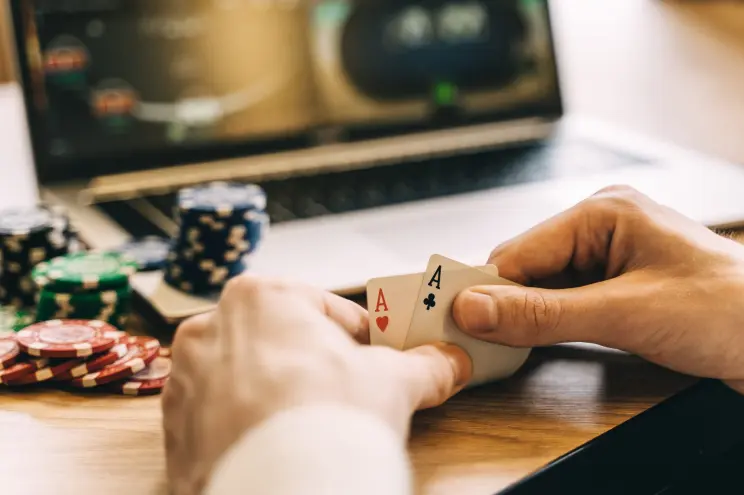Do you ever get caught up in the excitement of betting, only to regret it later? Understanding the psychology behind safe betting and knowing your limits can lead to a more enjoyable gambling experience. Dive into the world of NBA 분석 betting psychology with us. Gain valuable insights to help you make informed decisions. By understanding how your mind works with betting, you can control impulses and set boundaries that align with your well-being.
Recognizing Your Risk Tolerance
Understanding your risk tolerance is crucial when it comes to safe betting, especially in activities like toto betting. Knowing how much risk you’re comfortable with can help you make informed decisions and avoid unnecessary losses.
Take the time to assess your willingness to take risks and set clear boundaries for yourself. Consider factors such as your financial situation, past betting experiences, and emotional responses to wins and losses.
Setting Realistic Goals
Assessing your risk tolerance is essential for safe betting, and now it’s time to focus on setting realistic goals to guide your betting behavior effectively.
When setting goals, make sure they’re specific and attainable. Define clear objectives such as the amount you aim to win or the limit you’re willing to spend. Avoid vague goals like ‘I want to win big’ as they can lead to risky behavior. Instead, set achievable targets based on your bankroll and betting strategy.
Understanding the Gambler’s Fallacy
When setting realistic betting goals, be aware of the Gambler’s Fallacy, a common cognitive bias that can impact your decision-making and lead to risky behavior.
The Gambler’s Fallacy is the mistaken belief that if something happens more frequently than normal during a certain period, it will happen less frequently in the future, or vice versa. For example, if a roulette wheel lands on black multiple times in a row, you might believe that it’s ‘due’ to hit red soon.
This fallacy can lead you to make irrational bets based on the false assumption that past outcomes influence future results. By understanding and recognizing the Gambler’s Fallacy, you can make more informed and rational betting decisions, ultimately improving your overall gambling experience.
Identifying Emotional Triggers
To protect yourself from impulsive decisions and maintain control over your betting habits, you must learn to recognize and understand your emotional triggers. When you feel stressed, anxious, or overly excited, these emotions can lead you to make irrational choices while betting.
Pay attention to your feelings before, during, and after placing bets. Are you seeking a thrill to escape reality, or are you trying to recoup previous losses out of frustration? By identifying these emotional triggers, you can take proactive steps to manage them.
Consider setting limits on your betting activities or taking a break when you notice these triggers affecting your decisions. Self-awareness is key to responsible and safe betting practices.

Practicing Self-Control Techniques
To cultivate self-control in your betting behavior, employ mindful strategies that empower you to make deliberate and calculated decisions. Start by setting clear limits on how much you’re willing to bet and stick to them. When you feel impulsive or emotional, take a step back and reassess before placing any bets. Implementing a cooling-off period can help prevent rash decisions.
Practice mindfulness techniques to stay present and focused on your goals, avoiding distractions that might lead to reckless betting. Utilize positive self-talk to reinforce your commitment to responsible betting habits. By incorporating these self-control techniques into your routine, you can enhance your ability to make rational choices and enjoy a safer betting experience.
Utilizing Bankroll Management Strategies
Implementing effective bankroll management strategies is crucial for maintaining control over your betting finances and maximizing your long-term success. By setting specific limits on how much you’re willing to wager, you can protect yourself from significant losses and ensure that you can continue enjoying the thrill of betting responsibly.
One essential strategy is to divide your bankroll into smaller portions for each bet, helping you avoid risking too much on a single outcome. Additionally, regularly monitoring your spending and adjusting your betting amounts based on your wins and losses can help you stay on track and prevent impulsive decisions.
Learning From Past Mistakes
After dividing your bankroll into smaller portions for each bet and monitoring your spending, it’s time to reflect on your past mistakes to improve your future betting decisions. Look back at instances where emotions may have clouded your judgment, leading to impulsive or poorly researched bets. Did you chase losses, bet more than you could afford, or ignore key information? By acknowledging these errors, you can learn valuable lessons.
Analyze successful bets as well to understand what strategies worked. Keeping a record of both wins and losses can provide insight into patterns and areas for improvement. Use this reflection to adjust your approach, refine your decision-making process, and ultimately become a more successful and responsible bettor.
Seeking Professional Help When Needed
When facing persistent challenges in managing your betting habits, consulting a psychologist can provide valuable support and guidance. Professional help can assist you in understanding the underlying reasons for your betting behaviors and developing effective strategies to overcome them.
A psychologist can offer personalized treatment plans tailored to your specific needs, helping you address any underlying psychological issues contributing to your gambling habits. By seeking professional help, you can gain valuable insights into your behavior, learn coping mechanisms to deal with triggers, and work towards establishing healthier betting habits.
Remember that reaching out for support is a sign of strength, and a psychologist can provide you with the tools and guidance necessary to navigate challenges related to your betting habits effectively.
Embracing a Healthy Relationship With Gambling
Developing a balanced approach to gambling involves understanding and respecting your limits. It’s crucial to set clear boundaries for yourself and stick to them.
Start by establishing a budget for your gambling activities and avoid chasing losses. Embrace the mindset that gambling is a form of entertainment, not a way to make money.
Monitor your emotions while gambling and take breaks if you start feeling overwhelmed or frustrated. Remember that it’s okay to walk away from a game if it stops being enjoyable.







